Phases of Menstrual cycle
The day count for menstrual cycle begins on the first day of menstruation when blood starts to come out of the vagina. In this section, the length of menstrual cycle has been assumed to be 28 days (which is the average among women). The entire duration of a Menstrual cycle can be divided into four main phases:
- Menstrual phase (From day 1 to 5)
- Follicular phase (From day 1 to 13)
- Ovulation phase (Day 14)
- Luteal phase (From day 15 to 28)
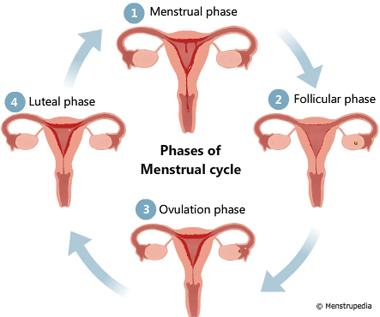
Menstrual phase (day 1-5)
Menstrual phase begins on the first day of menstruation and lasts till the 5th day of the menstrual cycle. The following events occur during this phase:
- The uterus sheds its inner lining of soft tissue and blood vessels which exits the body from the vagina in the form of menstrual fluid.
- Blood loss of 10 ml to 80 ml is considered normal.
- You may experience abdominal cramps. These cramps are caused by the contraction of the uterine and the abdominal muscles to expel the menstrual fluid.
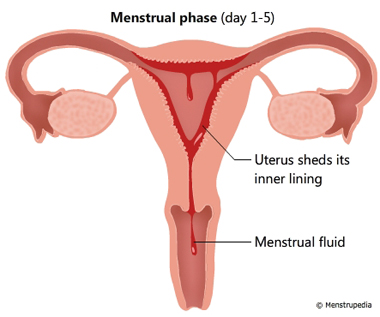
Follicular phase (day 1-13)
This phase also begins on the first day of menstruation, but it lasts till the 13th day of the menstrual cycle. The following events occur during this phase:
- The pituitary gland secretes a hormone that stimulates the egg cells in the ovaries to grow.
- One of these egg cells begins to mature in a sac-like-structure called follicle. It takes 13 days for the egg cell to reach maturity.
- While the egg cell matures, its follicle secretes a hormone that stimulates the uterus to develop a lining of blood vessels and soft tissue called endometrium.
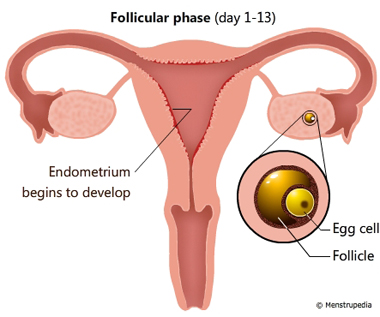
Ovulation phase (day 14)
On the 14th day of the cycle, the pituitary gland secretes a hormone that causes the ovary to release the matured egg cell. The released egg cell is swept into the fallopian tube by the cilia of the fimbriae. Fimbriae are finger like projections located at the end of the fallopian tube close to the ovaries and cilia are slender hair like projections on each Fimbria.
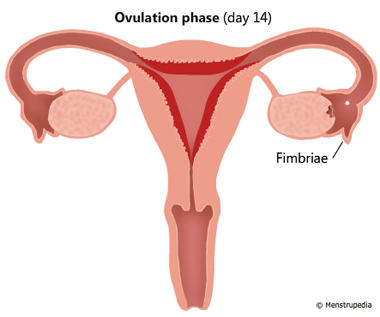
Luteal phase (day 15-28)
This phase begins on the 15th day and lasts till the end of the cycle. The following events occur during this phase:
- The egg cell released during the ovulation phase stays in the fallopian tube for 24 hours.
- If a sperm cell does not impregnate the egg cell within that time, the egg cell disintegrates.
- The hormone that causes the uterus to retain its endometrium gets used up by the end of the menstrual cycle. This causes the menstrual phase of the next cycle to begin.
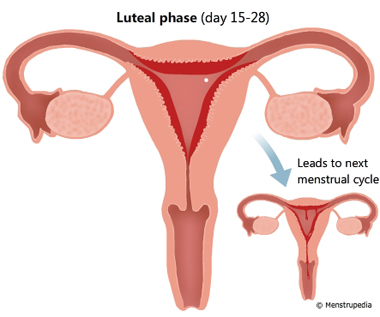
References:
- Menstrual cycle, http://en.wikipedia.org
- Menstruation and the menstrual cycle fact sheet, http://womenshealth.gov
- What is a menstrual cycle?, https://myhealth.alberta.ca



